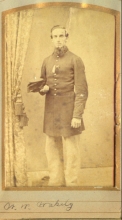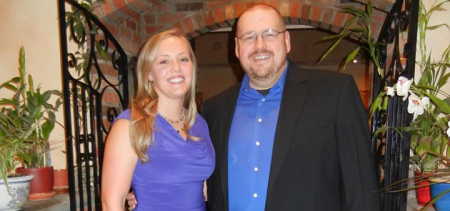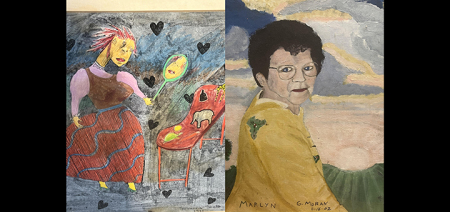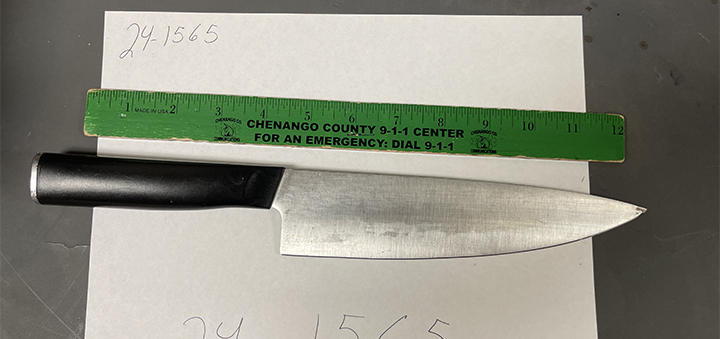Chenango In The Civil War: The Hole In The Bible – Part I
Published:
August 28th, 2012

Editor’s Note: In conjunction with the Chenango County Civil War Commemoration Project Team, The Evening Sun will present a monthly series chronicling items of local interest during the war between the states, compiled and written by a number of local history enthusiasts.
By Rose Wellman
Sherburne Historian
This is the story of a Civil War soldier from Sherburne, who was killed at the battle of Cedar Creek, October 19th, 1864. It is similar to others who were killed in the war, but the circumstances which occurred after his death make it a one-of-a-kind story. The soldier was Sergeant William Wesley Wakeley, son of Samuel and Phidelia Wakeley, born in Hamilton on November 15, 1837. He was a mechanic before he enlisted on August 2, 1862 in Co F, 114th NYV. He was called by either of his given names William or Wesley.
Years later his great, great- nephew, Kip Yerton, became interested in the story of his Civil War relative and began research for a book. Sadly, Kip passed away before he finished the story. I found out who had Kip’s papers and I asked for a copy. I have edited it in length and context for this article; otherwise these are Kip’s own words. The letters about the bible are italicized.
THE HOLE IN THE BIBLE
In this narrative you will learn about a bible given a soldier in the Civil War who supposedly carried it until his death. The bible was lost for 50 years and was returned to the family in 1914.
As the war was approaching its first year, the North was not doing well. They were being beat in Virginia, so Lincoln called for more troops. A bounty of $100 was to be paid for each enlistment of 3 years. This was when William Wesley Wakeley, a 26-year-old from upstate New York, who had never been more than 25 miles away from home, enlisted on August 3, 1862. in the 114th Company F, N.Y.V. in Norwich, NY.
When he enlisted, his family consisted of his mother, Philelia Bassett; step-father, Philo Bassett; two sisters, Mary Ann and Electa and a step-brother, Judge Bassett. In 1857 his sister, Electra, married William Brown and they had 3 children: Freddie, William and Charles Brown, who was my Grandfather. In 1914, Electra Brown was 81 years old. She died in 1919 in Sherburne, New York.
On September 3, 1862, the troops left for Binghamton via the Chenango Canal and then took a train to Baltimore. Like many other soldiers, William got sick in the first month with measles or rubella fever. From November 6, 1862 until January 12, 1863, he was in the hospital at Chesapeake, VA. On February 1, 1863, he sailed on the ship Montebello to the quarantine station in the Marine Hospital near New Orleans. He returned to service on April 1, 1863. On May 25, 1863, he became sick again with malaria fever, as did many who were sent to the South. He returned to service on July 25, 1863, making a total of 8 months out of the first year in the service spent in the hospital.
This is the story handed down in my family for the last 143 years. Some say he carried this bible in his shirt pocket. It is hard for me to believe that. The bible would fill his pocket and be in the way for marching and fighting. I feel he carried it in his haversack where he kept all his belongings, such as food, utensils and anything else he needed.
This Sherburne family was the keeper of records and kept all important papers, including 30 letters sent home by William from the Civil War, which told of different things he saw from Baltimore to Washington and other places. He asked for news from home and his hometown since he left. If I had not cleaned out by mother’s attic, I would not have found these letters, which spurred my curiosity.
In William’s last letter dated September 1864, he tells of “all things quiet in camp; must be the ‘Rebs’ all went to Richmond.” William’s last battle was the battle of Cedar Creek at Belle Grove, VA, which was fought on October 19, 1864.
This battle, the culminating battle of the Valley Campaigns, started at 4 in the morning under a cover of fog, when the Rebels overtook the Yankees by a bold move, coming in the middle of the night and attacking them as they were still sleeping. They were all up at the sound of gun fire, but they thought that the enemy was not even close enough for an attack. As the Rebels overtook the camp many took what they could from the Yankees’ huge store of provisions and personal items.
I do not know where William was at this time or where he was killed on the battlefield. I stood on this same battlefield 142 years later and it sent shivers up my spine, knowing what happened on this spot so many years ago. The final statement from the 114th regiment states no personal effects were found to be sent home. I believe the family was looking for his belongings, especially a small, leather-bound bible, which had been sent to him by a young lady, who was a neighbor back in Sherburne.
From official company records, Sergeant Wakeley was killed on October 19, 1864 and his cause of death was from wounds received. He was buried at Winchester, VA, in the National Cemetery section for the Battle of Cedar Creek, at the marker of the 114th N.Y.V. I have seen his grave with his name on it. I have a statement from a Dr. Stonic G. Thouter that he put a marker on his grave but this was 50 years later.
(Please note that the date is unsure for the publication of this clipping, but the year was 1914 and it started an unusual chain of events.)
FROM THE 1914 SHERBURNE NEWS:
RELIC FROM THE BATTLEFIELD, A Bullet Pierced Bible That Belonged to a Sherburne Soldier:
“The soldier whose bible was picked up on the Cedar Creek battlefield, as mentioned in the following article, was William Wesley Wakeley, whose name is among those honored by a place on the Soldier’s Monument on the Sherburne public square and who was killed at the battle of Cedar Creek and it may be by the same bullet that pierced the bible. If any of our readers can identify the Miss Eliza R Hatch, we will be pleased to publish the facts, that her friends may know what became of the bible that over half a century ago she gave to Wesley, that he might have the sacred volume with him in camp life. Wesley was a good Christian and no doubt derived much comfort in the reading of the keepsake given him by Miss Hatch. A peculiar coincidence relating to these facts is that a sister of Wesley’s married a man by the name of Brown, and descendants are now residing in Sherburne, who will be glad to have this souvenir of the war in their possession, no doubt.”
The second item in the same paper came from Asheboro, NC.
“The Courier representative was shown a very interesting relic yesterday by Squire S.E. Lowdermilk of Asheboro. It was a small, leather bound Bible, with a flap that folded over the edges and contained a bullet hole ranging diagonally through it. The Bible was picked up on the battlefield at Cedar Creek, VA after the battle of October 19, 1864, by Mr. P.S. Brown, of this county, now in the soldier’s home at Raleigh. On the fly leaf of the book is the following inscription in a lady’s handwriting: “Sergt. Wm. W. Wakeley, Co. F, 114th N.Y.V., presented by Miss Eliza R. Hatch, of Sherburne, Chenango Co., NY; and on another blank leaf is written: “Miss Eliza R. Hatch.”
A lead mark is plainly visible where the bullet went through. According to the range of the bullet hole, the Bible must have been carried in somebody’s pocket and from all indications presented an ugly wound, or perhaps saved its owner’s life and allowed him to go back and marry the donor of the book, who evidently was his sweetheart. The relic certainly would be prized very highly by the parties whose names are given above or by relatives of theirs. If any of the parties interested should see this article they can communicate with Mr. Lowdermilk or the editor of The Courier, Asheboro, NC.”
Part II of this story will appear in The Evening Sun next week.
Comments






